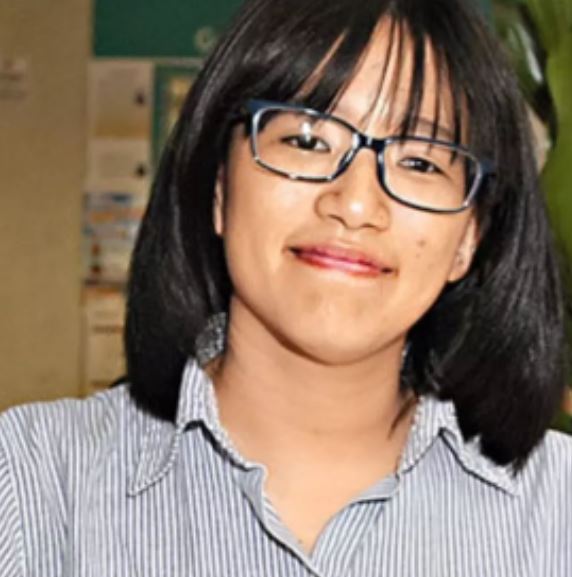编者按:7月9日,中国709抓捕六周年,恰好也是阿彤被还押之后首次回到西九龙裁判法院作保释复核的日子。
709一直是幸彤心心念念的事,因为在她眼中,这不仅仅是一场针对中国内地人权律师的大抓捕,更是对内地整个公民社会的镇压和扫荡,余震至今未平息——在709中被抓捕的周世锋律师、胡石根长老、政治漫画家“屠夫”吴淦至今在囚,帮助被捕律师的律师余文生也不能幸免,整个社会只剩下官方一种“正确”的声音……
十天前的709当日,她在庭上自辩,亦有相关的话想讲,但很遗憾,阿彤说她才讲了个开头,裁判官就决定拒绝她的保释申请了。那唯有把没有在庭上说出的话,写信出来给大家看看吧。
我现今面对的控罪,是不折不扣的文字狱,是政权对六四记忆的政治打压,是要令整个公民社会禁声的其中一场战役,是以法律之名行不义之事。
而六年前,当709发生在中国内地,我们能立即意识到这是一场不公义的政治检控,我们法律界的同行,会站出来默站抗议,要求释放王全璋律师、李和平律师;我们会批评官媒的未审先判,会谴责盲目配合的法庭,会要求政府尊重人权。
但六年后,当同样的事情来到我们身边,我们却似乎失去了辨别事情本质的能力。我们的法庭——容许我这样说——往往只是顺着政府的剧本走,配合地把一个又一个政治犯送入牢笼,无限期地关押。
法治最重要的原则,法庭最神圣的任务,就是制约权力,保障人权。而政治检控——以刑事程序达到政治打压的目的,恰恰就是最常见亦最恶劣的一种滥权。纵容这种对法律程序的滥用,会令法庭的公信力被消磨殆尽。
709过去六年,我们见到的是国内的公民社会经此一役,元气大伤,社会只剩官方的一种声音,不再有多元讨论、自由思辨。这难道是我们想见到的香港吗?
我作出复核申请,是因为我确信保释是我的权利。言论自由是我的权利,控方这次的检控和反对保释,是违宪地侵犯了我的言论自由和人身自由。
我作出复核申请,是因为确信法庭在目前的政治环境下,是有责任更积极地捍卫公民权利,制约政权对公民自由的打压。
我作出复核申请,更是因为见到709的前车之鉴,不想见到香港社会变得和国内一样死寂,在面对人权侵犯时,无人发声。
是认可香港要有文字狱,还是要对政权的滥捕说不,就在一念之间。
转自网络
附英文:
Letter from Chow Hang-tung: 6th anniversary of China’s “709 Crackdown”
Editor’s note: July 9th marked the 6th anniversary of China’s “709 Crackdown”. Coincidentally, it was also the day Hang Tung returned to the West Kowloon Magistrates’ Courts for the first time for bail review.
The 709 Crackdown has always been on Hang Tung’s mind. To her, it was not just a mass arrest targeting human rights lawyers in mainland China, but a sweeping clampdown of the entire civil society, with its aftershocks still being felt. Lawyer Zhou Shifeng, Pastor Wu Shigen, political cartoonist Butcher Wu Gan are still being imprisoned. Even Yu Wensheng, the lawyer who helped the other arrested lawyers, could not be spared. Now, only the government’s voice is deemed “correct” and allowed in the society….
In her self-defence statement in the court, she had similar words to say. But according to Hang Tung, the Magistrate cut short her statement right in the beginning and declared rejection to her bail application. Hence, she has decided to put in writing what she did not manage to say in the court.
=======
The accusation I am made to face right now is blatantly a case of incarceration for writings or speeches. It is the authorities’ attempt to wipe out our memories of the June 4th. It is one of their maneuvers to silence to the civil society, an injustice done in the name of law.
Six years ago, when the 709 Crackdown struck in mainland China, we immediately realized that it was an unjust political persecution. Our colleagues in the legal profession then launched a stand-in-silence protest, demanding the release of lawyers Wang Quanzhang and Li Heping. We criticised the state media for the conviction without trial and condemned the court for its blind collaboration with the authorities. We reckoned it necessary to demand the Chinese government to respect human rights.
But after six years, when now the same thing has come to us, we seem to have lost the ability to discern the essence of the issue. Our court – allowing me to say this – is just acting in accordance with the government’s script, by sending the political prisoners into jail one after another and by keeping them in detention indefinitely. The most important principle of the rule of law, and the most sacred task of the court is to countercheck the power of the state and protect the rights of the people. Political persecution, via means of the criminal procedures, is exactly the most common and worst form of power abuse. To condone this kind of abuse of the legal procedures will give the public the impression that the court is an accomplice. It will also drain the credit of the court.
Six years after the 709 Crackdown, we can see how devastated the civil society in China has now become. The official voice is the only voice left in the society. No more diverse discussions or free speculative thoughts. Is this the Hong Kong we all want to see become?
I made this application because I am convinced that it is my right to get bail and my right to enjoy free speech. The prosecution and the request for me to be remanded is infringing my constitutional rights to the freedoms of expression and of personal movement.
I made this application because I am convinced that in this context when power is so much tilted, the court has the responsibility to proactively defend people’s civil rights and to countercheck the state’s assaults on citizens’ rights to freedoms.
I made this application because I don’t want to see the Hong Kong society being silenced like the one in the mainland, and no one will speak up when human rights are trespassed.
It rests upon everyone’s thought of the moment to decide whether we should allow incarceration for writing/ speeches to exist in Hong Kong or to say no to arbitrary arrests.

